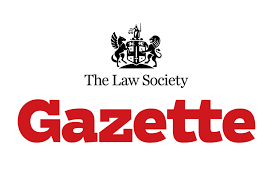News & Insights
Supply side problems heightening premium creep in the Solicitors Professional Indemnity Market.

It was only 12 months ago that one of our competitors was trumpeting a £100m three-year capacity deal for Solicitors Professional Indemnity Insurance, which blew me away; how does one insurer have an appetite to write one third of the available industry premium? – they clearly know something I don’t.
Well, whether it was marketing spin, or a poorly positioned underwriting plan, that same Insurer wrote to their brokers last week, extolling the difficulties of the market and their need to make sweeping changes (read reduction in capacity) to allow them to make the product remain viable.
With other big brand names in the space distributing similar messages of enough is enough, it seems that this main renewal period might have some of the lowest levels of insurance capacity seen in the last decade. This inevitably leads to one thing, premium creep – with many insurers “having their fill” of the class and others looking to offload clients, and no apparent new entrants; those client’s not being offered renewal terms, or who are priced out by their current insurer are likely to face material premium hikes to find the cover they need, as demand outstrips supply.
This supply problem is exacerbated by the SRA who perennially seem to consult on changes to the minimum term’s insurers must sign up to. I don’t remember a year in which a consultation into a change was published and ratified before the 11th hour prior to the 1st of October. This year is no different, as I sit here writing this in the last week of July the SRA have not published their findings of a consultation into the extent of Cyber Liability a Participating Insurer will be required to supply from the 01 October this year! A cover so material and topical – that it would make any new entrant think twice and any incumbent providers hold back.
At Inperio all I can say is that our products remain viable and importantly profitable. Over the last few years, we have invested heavily in working with our policyholders to reduce risks. Whether this was the introduction of Cyber Audits with our partner Cyfor, or more latterly providing reductions in premiums where AML checking is done via Thirdfort – on the face of it these measures have resulted in fewer claims and more sustainable premiums to those policyholders who have engaged in our process.
Like many insurers however we need risk spread and also want to limit our exposure to any one industry; and with our solicitors’ portfolio we are close to that perceived limit. There will of course always be the opportunity to provide insurance to well run firms, who engage in our risk mitigation processes; but for many firms who have been complacent around their renewal and their risk management – it’s probably time to reassess, because if your insurer doesn’t easily offer a renewal – those firms might struggle to find an alternative.
This year is likely to be tough on the legal industry, and for many their premiums will go up as the supply of insurers prepared to write the class continues to fall. I am concerned that for some, it will lead to firm closures, either due to the inability to find insurance or the relative cost of it.
So firms should start the process now, consider their options and put their best foot forward in showing why this year more than ever they are better option to an insurer than their peers.
Simon Lovat


